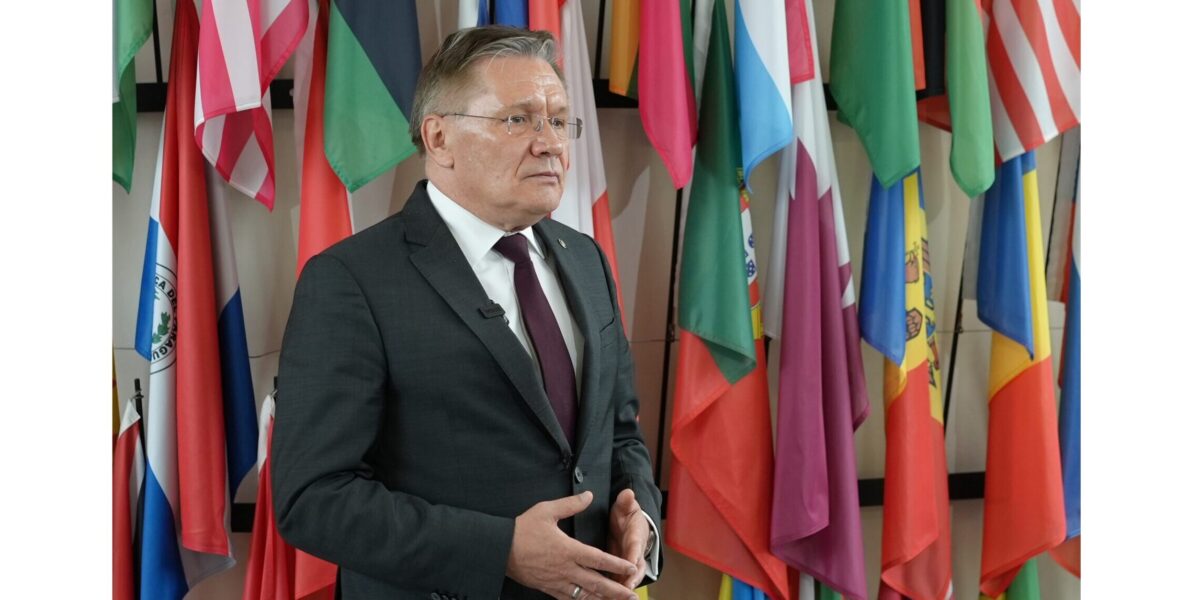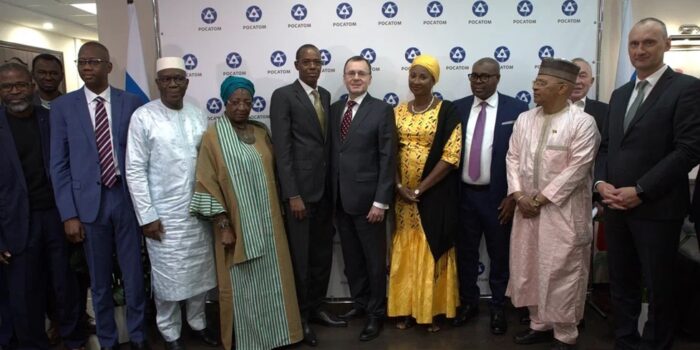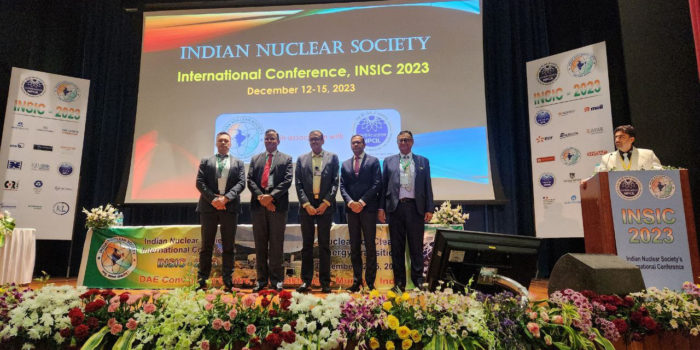The delegation of the Russian Federation participated in the 68th session of the General Conference of the International Atomic Energy Agency (IAEA), held from September 16 to 20 in Vienna, Austria. The delegation was headed by Rosatom Director General Alexey Likhachev, and also included Alexander Trembitsky, head of Rostekhnadzor, and Mikhail Ulyanov, Permanent Representative of the Russian Federation to International Organizations in Vienna.
In his speech at the plenary session of the General Conference, Alexey Likhachev emphasized Russia’s consistent support of the IAEA activities. He pointed out two critical trends shaping nuclear energy’s future: the closure of the nuclear fuel cycle and the development of small modular reactors, both of which are progressing in Russia. Likhachev also updated foreign attendees on the current situation at Russia’s Zaporozhskaya and Kursk nuclear power plants.
Following the conference’s opening, Likhachev met with IAEA Director General Rafael Grossi. As in previous meetings, the safety of nuclear facilities remained a top priority for both parties.
On the sidelines of the conference, Likhachev held discussions with key international partners. In meetings with counterparts from Hungary, India, and Iran, he covered the full spectrum of topics related to the construction of Russian-designed nuclear power plants in these countries. Despite unprecedented sanctions, Rosatom’s projects remain on track.
A significant discussion also took place with the Director of Uzatom concerning the construction of a small-capacity nuclear power plant in Uzbekistan. The agreement on its construction – the world’s first export contract for a small nuclear plant – was signed in May 2024.
Likhachev also explored prospects for deeper cooperation with partners from Iraq and Kazakhstan. Notably, a Memorandum of Understanding was signed with Iraq’s Atomic Energy Commission for collaboration in the peaceful use of nuclear energy.
The Russian interdepartmental delegation held meetings with representatives of more than 30 countries – from relevant ministries, nuclear regulators, and major nuclear companies.
Rosatom further organized several side events, building on topics raised by Likhachev at the plenary session. Discussions at the round table on Innovative Nuclear Energy Systems with Closed Fuel Cycles focused on the potential of such systems for safe, cost-effective and environmentally sound nuclear energy development. During the session Sustainable Nuclear Fuel Cycle: Innovating for Long Term Success the latest advancements in spent fuel and radioactive waste management were highlighted. At another round table Small and Micro Scale Nuclear Energy Solutions for Industrial Users participants discussed the role of small-capacity nuclear energy in meeting sustainability goals. Rosatom also hosted events on science and workforce development.

Interactive displays at the exhibition showcased the Russian nuclear sector, including future technologies such as the fast neutron reactor energy complex with an on-site closed nuclear fuel cycle, part of the Proryv (Breakthrough) project. This is a comprehensive solution that will allow for the multiple uses of spent nuclear fuel.
At the IAEA General Conference, Russia reaffirmed its commitment to further cooperation with foreign partners and strengthening international ties in the peaceful use of nuclear energy.
Reference
The IAEA General Conference is the top decision-making body of the organization, gathering annually to address key issues in nuclear safety, non-proliferation, and peaceful nuclear energy use. It takes place at the IAEA headquarters in Vienna, Austria, and includes all member states, international organizations, and representatives from various industries. The conference features plenary sessions where IAEA reports, programs, and budgets are reviewed, alongside thematic round tables and events that focus on specific areas of the agency’s work and international cooperation. The conference plays a crucial role in shaping the global nuclear agenda and strengthening international security.
Rosatom, a global leader in nuclear energy, actively supports IAEA initiatives and is focused on maintaining its position as a reliable partner for countries interested in nuclear energy development. The company also contributes to achieving global sustainability goals and fighting climate change.
Russia continues to build international trade and economic relations, prioritizing cooperation with friendly countries. Rosatom remains deeply involved in foreign energy projects, with ongoing implementation.





